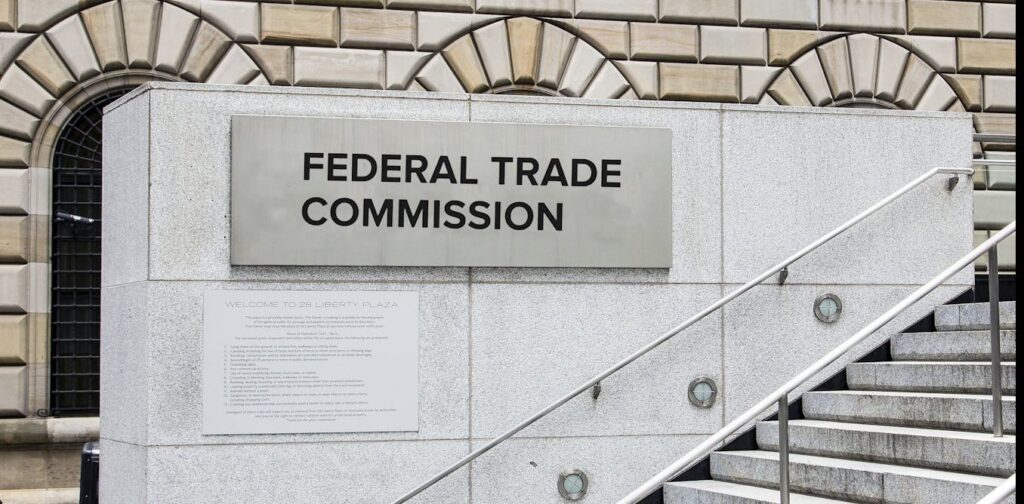As we gear up for the 2024 U.S. presidential campaign, technology regulation is becoming a hot-button issue. Advanced technologies over the past decade—spanning everything from social media algorithms to sophisticated AI systems—have impacted our lives in profound ways. Amidst significant societal changes during both the Trump and Biden administrations, there has been a growing call for the federal government to step in and regulate these technologies and the powerful corporations behind them.
As a researcher in information systems and AI, I’ve taken a closer look at the technology regulation records of both presidential candidates. Here’s what sets them apart.
Understanding Algorithmic Harms
Artificial intelligence is shaping our daily lives in ways many of us might not even realize. From biases embedded in algorithms for lending or hiring that can perpetuate discrimination—like a student’s inability to secure a loan for college reducing her chances of escaping poverty—it’s crucial for our leaders to address these issues.
At the recent AI Safety Summit in the U.K., Vice President Kamala Harris highlighted the dual nature of AI—its immense promise and its potential perils, including algorithmic bias and the threat of deepfakes. On the other hand, President Biden signed an executive order on AI on October 30, 2023, acknowledging that AI systems can pose serious risks to human rights and individual well-being. Meanwhile, the Federal Trade Commission has begun taking actions to mitigate algorithmic harms.
In contrast, during his administration, Trump did not make public efforts towards tackling algorithmic risks. While he has indicated a desire to reverse Biden’s AI executive order, his recent comments suggest a growing awareness of the dangers posed by technologies like deepfakes.
Technological Standards
Under Trump, the American AI Initiative was introduced in February 2019, aiming to enhance AI research investments and establish national research institutes. Trump’s administration also prioritized standards for AI usage within the government.
The Biden-Harris administration seeks to extend these initiatives. In May 2023, Harris brought together leaders from tech companies like Google and Microsoft to discuss voluntary commitments aimed at protecting individual rights. Moreover, Biden’s executive order includes investigations into the vulnerabilities of massive AI models that could be exploited by cyber attackers.
Antitrust Measures
Antitrust enforcement represents another crucial avenue for regulating the technology sector. The Trump administration attempted to block AT&T’s acquisition of Time Warner, a move that ultimately failed in court. They also initiated an antitrust suit against Google over its search dominance.
However, the Biden administration has stepped up its game. On July 9, 2021, Biden signed an executive order designed to enforce antitrust laws addressing the anti-competitive behaviors of major tech firms. His administration has initiated lawsuits against companies like Apple and Google, with 2023 merger guidelines aiming to clarify when mergers may be deemed anti-competitive, suggesting a stronger push for meaningful regulatory change.
Cryptocurrency Regulations
The two candidates have markedly different takes when it comes to cryptocurrency regulation. Trump has evolved his stance over time, showing support for the idea of the U.S. becoming a “Bitcoin superpower” and even allowing his campaign to accept cryptocurrency payments. Meanwhile, late in his presidency, the Financial Crimes Enforcement Network proposed regulations focused on enforcing identity checks for cryptocurrency transactions, which did not go into effect.
In contrast, the Biden-Harris administration has put forth stricter regulations. The Securities and Exchange Commission has taken numerous enforcement actions regarding cryptocurrencies, and the White House vetoed a bill intended to clarify cryptocurrency accounting—a move that raised eyebrows within the crypto community.
Data Privacy and Protection
When it comes to data privacy, Biden’s AI executive order calls for Congress to enact comprehensive privacy legislation but lacks a solid framework for doing so. Trump’s American AI Initiative offered blanket statements concerning civil liberties and privacy without a clear enforcement strategy. Currently, and regrettably, a patchwork of statewide data privacy initiatives exists without a unified federal approach.
This reflects an oversight in addressing the federal challenges posed by AI and technology at large, emphasizing that regardless of which presidential candidate emerges victorious, there’s still a long road ahead to regulation done right.
In summary, while both the Trump and Biden administrations have taken steps to address technology regulation, the approaches and emphases differ significantly. The Biden administration appears to be more committed to reinvigorating antitrust laws and protecting consumer rights in this digital age, rethinking monopoly protections for the modern era.
The AI Buzz Hub team is excited to see where these breakthroughs take us. Want to stay in the loop on all things AI? Subscribe to our newsletter or share this article with your fellow enthusiasts.




